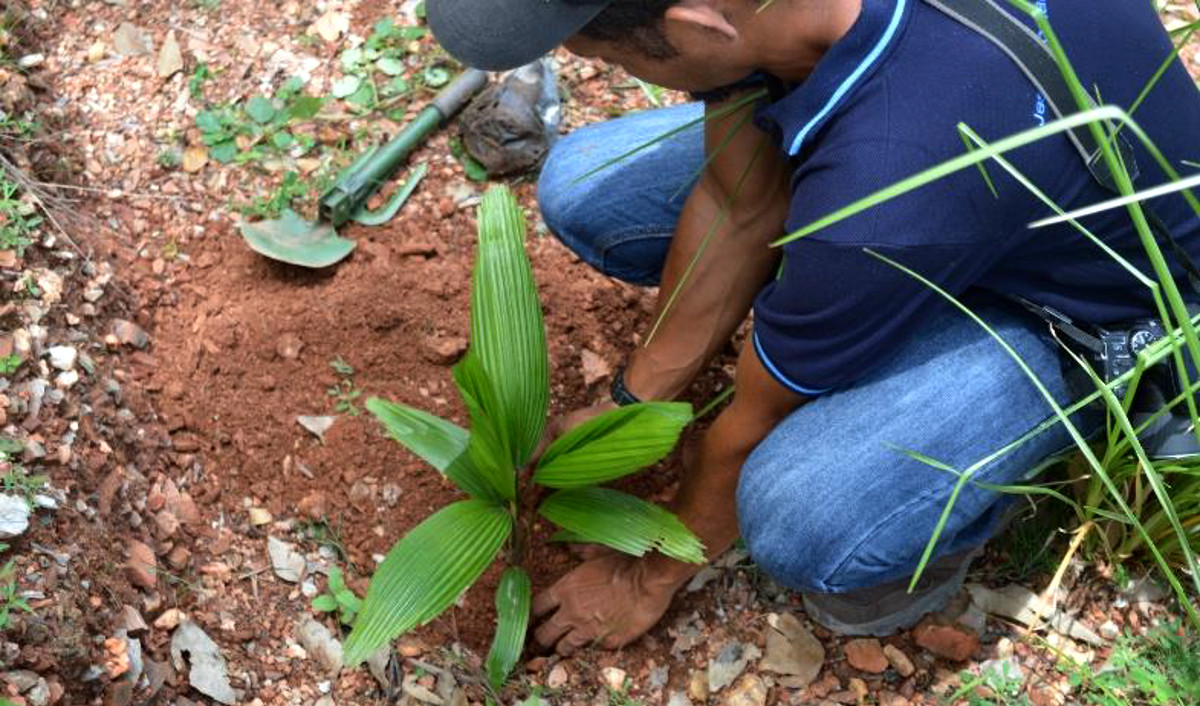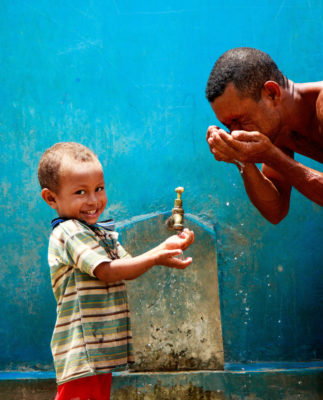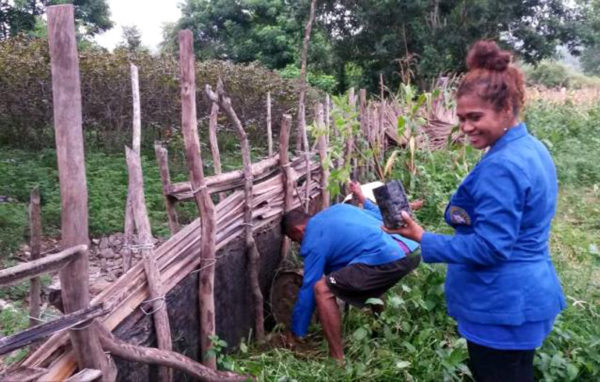 Rural communities in and around Dili are showing a positive change in their perception of the value of trees since Jesuit Social Service Timor-Leste began its reforestation programme. Through its clean water project, Jesuit Social Service (JSS) is making the communities see the intricate connection between forest and water resources, motivating them to cut fewer trees and plant more seedlings. For every tree that is cut down, the community must plant 10 seedlings or more to help with forest regeneration.
Rural communities in and around Dili are showing a positive change in their perception of the value of trees since Jesuit Social Service Timor-Leste began its reforestation programme. Through its clean water project, Jesuit Social Service (JSS) is making the communities see the intricate connection between forest and water resources, motivating them to cut fewer trees and plant more seedlings. For every tree that is cut down, the community must plant 10 seedlings or more to help with forest regeneration.
“There is a change in the perception of the people from being accustomed to cutting trees for firewood to a more responsible exploitation of natural resources,” shared Fr Erik John Gerilla SJ, Director of JSS Timor-Leste.
Fr Gerilla noted that although the clean water project has brought marked improvement in the people’s health and overall living condition, they are harming their environment and potentially their water reserves with their practices.

About 90 per cent of the beneficiaries use firewood for their cooking and household needs. Selling firewood is also a lucrative business in Hera and Kasait, which supply most of the firewood in Dili.
“They cut branches at the beginning, but soon the entire tree is gone,” said Fr Gerilla. “It takes a week to cut down a young eucalyptus tree, but imagine all the families doing the same. The rate of deforestation would be higher than any efforts to replenish the trees that are being felled at such an alarming rate. If their forest cover continues to decline at such a fast rate, soon the water supply will also be gone.”
To address this, JSS devised a scheme in which the beneficiaries of the water project were asked to set a target number of seedlings to plant and nurture to maturity. JSS provides the seedlings, which are grown in two greenhouses built in Hera and Dare for this purpose. The communities water and care for the seedlings, making sure their cows and goats do not graze on them. Funds for the construction of the greenhouses and subsidy for the seedlings came from Flights for Forests, the carbon-offset programme of the Jesuit Conference of Asia Pacific.

Deforestation is not only an ecological problem but also a behavioural concern. JSS produces training modules and materials to help raise the collective consciousness of the people and encourage them to work for the preservation of their watershed forest reserves.
JSS is also negotiating a partnership with Mercy Corps for the fabrication of a cooking stove that uses less firewood but produces the same amount of energy as the traditional furnace or cooking stove. JSS plans to subsidise the cost of a stove for each family to help arrest the increasing demand for firewood.
“These are just mitigating efforts that do not directly address the practice of cutting down trees,” said Fr Gerilla, “but if the rate of cutting down is compensated with a much higher rate of planting trees and lesser demand for firewood, there is reason to hope”.

